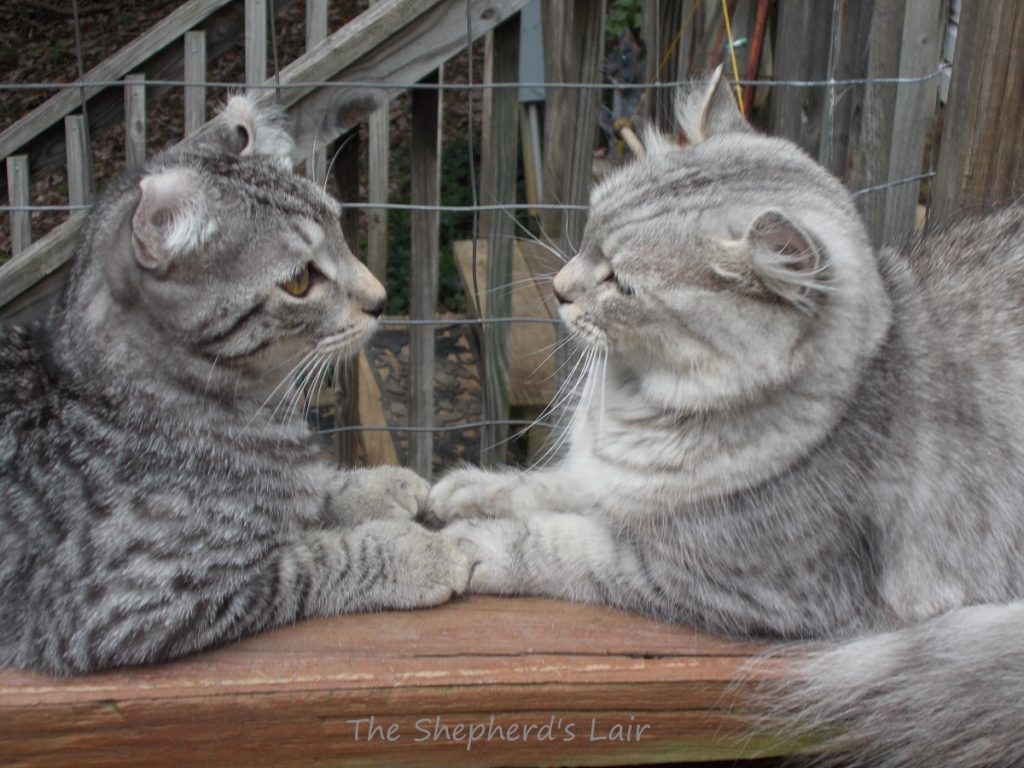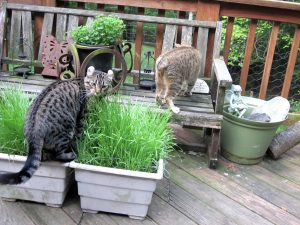
Dietary Needs & Feeding Guidelines
All cats are obligate carnivores and Highland Lynx cats are no exception. This means they require food that is primarily animal protein in order to stay healthy and live a long life. Their diet should be Grain-free (they cannot digest most carbohydrates well), as well as free of sugars, preservatives, colors, and other filler. If you want your cat to thrive, you will feed him/her as close to what it would eat in the wild as you possibly can.
Where would a cat (or dog) find dry food in nature???? The obvious answer is that they would not! Cats are also very susceptible to kidney, bladder and urinary tract issues. These are often caused in large part by low moisture in their diets. Cats are designed to get much of their required moisture/water from their diet/prey and for the most part, are not big drinkers. We recommend that wet food be the primary diet of all cats and dry food be a very small percentage of their diet (for training and snacks only).
Ideally a cat would be eating the entire prey animal which would include bones and organs with their meat. This provides calcium and many other minerals as well as helping to keep their teeth and body healthy. Today there are several foods you can purchase which contain ground bone for your cats health; We use PRIMAL raw foods but there are other prepared/frozen raw/freeze dried and canned foods that offer quality.
SUPPLEMENTS: If your cats food does not contain Probiotics, essential fatty acids, green plants and a few veggie’s, add these in supplemental form to your cats wet food for more complete nutrition. Most cats will really appreciate a pan of fresh wheat grass to nibble on as well. 
Ears, Coat & Nails
EARS: VERY IMPORTANT NOTE – The Highland Lynx Cat has a smaller ear canal due to the harder cartilage that causes the ears to curl. They also tend to form heavier wax build-up than most cats. This excess is often mistaken for ear mites (which would be accompanied by a bad odor and coffee ground type dirt in the ears). Because of this excess wax and the smaller opening, it is important to clean regularly clean their ears with a natural cleaner, so as to avoid blockage and ear infections. Your cat may dislike this kind of grooming, but it will help prevent serious issues with their ears. We use Ark Naturals Ear Cleaner, a safe, gentle, natural product. You can ask your Highland Lynx Breeder for more information on ear cleaning.
COAT: Highland Lynx cats require less grooming than some breeds although a good brushing every few days is good for them and keeps shedding down. This kind of handling keeps you in touch with small issues of your cats skin and coat health that you might not otherwise be aware of as well as giving you extra bonding time. Start your kitten young in order to create an enjoyment of brushing/combing.
NAILS: The Highland Lynx often has more toes (polydactyl) than a domestic cat and all those toenails need trimmed to avoid them growing back into their paws and getting caught in carpets, furniture, etc. It is important to begin trimming your cats nails at a very young age to get them accustomed to the experience…..and then to trim at least once a month. This protects your furniture and your skin and prevents any over-growth of nails that could cause damage to their feet.
NOTE: When getting your cat spayed or neutered please research and consider asking your Vet NOT to use Ketamine as the anesthetic. Also be wary of Metacam as a post-surgery pain med!!! Many exotic cats have had serious side effects and even died due to a reaction to these drugs.
